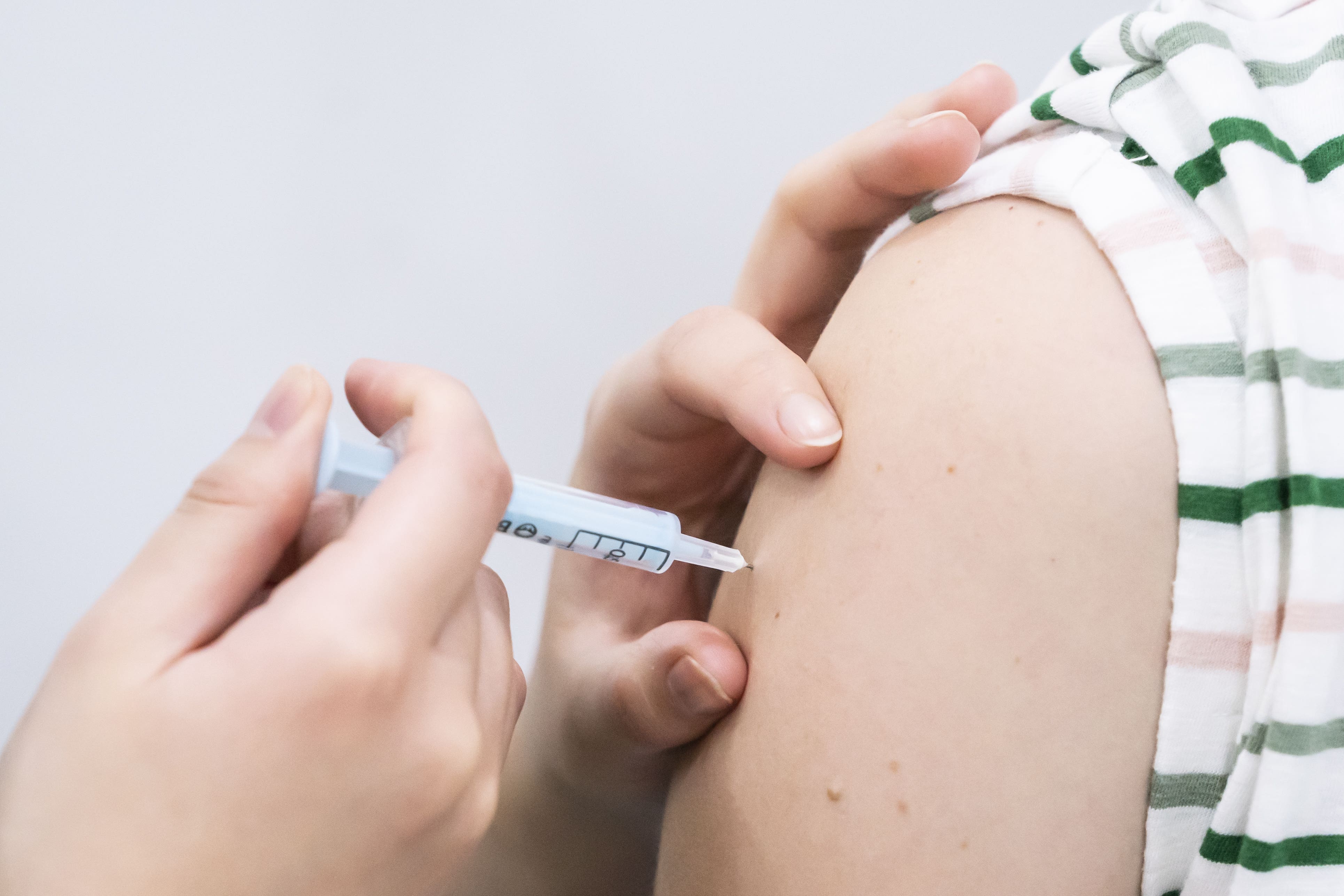Alarm as fewer young people protected against meningitis
A dip in vaccine coverage means more children are not protected against potentially deadly disease.

Health officials have warned that some young people are at risk of potentially deadly meningitis and blood poisoning after a fall in vaccine coverage among teenagers.
Uptake of the jab that protects against the bacteria which lead to meningitis fell significantly last year, the UK Health Security Agency (UKHSA) said.
The number of youngsters given a shot against polio, diphtheria and tetanus, also known as the 3-in-1 jab, also fell, it added.
Officials said that the dip in coverage means that many young people are unprotected from life-threatening diseases.
Children and young people who have missed out on their teenage vaccines should contact their school nurse, school immunisation team or GP surgery to arrange a catch-up.
Children school Year 9 are offered the jabs in school as part of their routine childhood immunisations.
This includes the 3-in-1 jab and the MenACWY vaccine, which protects against four strains of the meningococcal bacteria – A, C, W and Y – which cause meningitis and blood poisoning.
Before the pandemic around 88% of children took up the offer of these vaccines, which are usually given at the same time.
But in the 2021/22 academic year, this fell to just 69% for both jabs, according to UKHSA data.
In 2020/21 there was also a dip in uptake, but catch up programmes have led to more children taking up the offer.
UKHSA is urging all parents and carers to ensure their teens are up to date with their jabs before they leave school.
Dr Vanessa Saliba, Consultant Epidemiologist at UKHSA said: “In recent years we have seen vaccine uptake fall due to the challenges posed by the pandemic. Many young people who missed out on their vaccinations have already been caught up, but more needs to be done to ensure all those eligible are vaccinated.
“Children and young people who have missed out on their teenage vaccines should contact their school nurse, school immunisation team or GP surgery to arrange a catch-up.
“These vaccines offer the best protection as young people start their journey into adulthood and mixing more widely, whether going to college, starting work, travelling or going to summer festivals.”
Health minister Maria Caulfield added: “It’s incredibly important for children to stay up to date with routine vaccinations as this remains one of our best defences against infectious diseases, not just for the person being vaccinated but for their family, friends and those around them.
Last week Unicef said that some some 67 million children around the world did not receive routine jabs between 2019 and 2021.
The international children’s body said overall support for vaccines remains “relatively strong” but several factors suggest the “threat of vaccine hesitancy may be growing”.
These factors include uncertainty about the response to the pandemic, growing access to misleading information, declining trust in expertise, and political polarisation, it said.
Meanwhile, Medecins Sans Frontieres/Doctors Without Borders (MSF) has called on countries around the world and the international vaccine body Gavi to help drive a catch up programme for youngsters.
It warned that there are a growing number of unvaccinated children in crisis-hit countries and that current programmes could leave many as so-called “zero-dose children” – those who have not received any routine childhood jabs.
“The double-whammy of humanitarian crises and the pandemic has left a growing number of children in many countries where we work at a high risk of contracting life-threatening diseases like measles, diphtheria or pneumonia that could be prevented by vaccines,” said Miriam Alia Prieto from MSF.